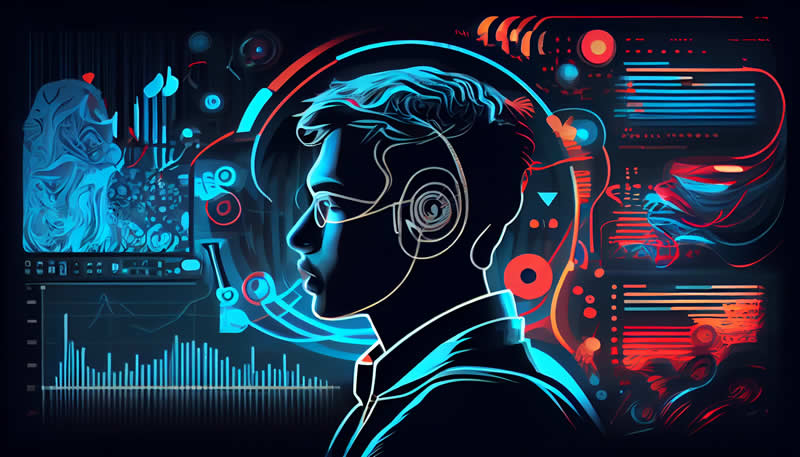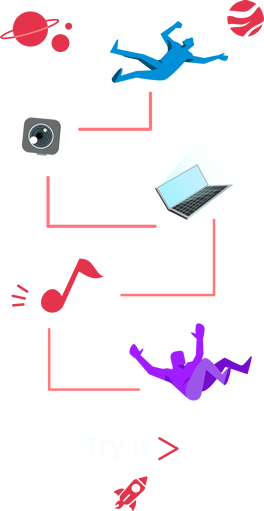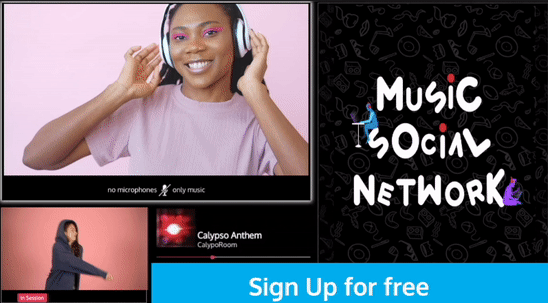9 Easy and best steps on how to become a music producer
Feeling overwhelmed only thinking about the several duties that a music producer usually overtake?
If you're interested in becoming a music producer, you've come to the right place. You'll find that there are many different aspects to producing: from recording instruments and vocals to mixing tracks, mastering them, and even creating music videos for your songs.
With this guide though, we'll try our best to give you some basic tips on how to become a music producer, without getting too technical. So let's get started!
Start a side-hustle in the music industry
Starting a side-hustle in the music industry is a great way to get your foot in the door, even if you don't have any formal training. You can start by doing things that you're already good at or enjoy doing, like playing an instrument or singing.
There's no need to go into this endeavour with grand plans for world domination; just make sure that whatever it is that you choose to do has some relation to music production as well as being something that interests and/or challenges you so that it's worth your time and effort.
When it comes time to market yourself, don't be afraid of failure! Embracing failure will give you courage and resilience when setbacks inevitably occur along the way toward success.
It will also help keep things in perspective: while getting rejected from one audition might feel devastating at first (especially if it was your first), remember that there are many more opportunities out there waiting for someone like yourself who keeps trying!

Picking a DAW is important to become a music producer
A DAW is a “Digital Audio Workstation”. It’s a program that allows you to record and edit your music, mix tracks down, add effects, and so much more.
While you can use a single DAW for all of these tasks, most producers will use multiple programs at once—some combination of their main DAW with some additional plugins or programs like Ableton Live or FL Studio.
You don’t necessarily need to buy any special equipment either; most modern computers come with some sort of editing software already installed (even if it is just iTunes).
Some of the most popular DAWs include Apple's GarageBand, Steinberg Cubase, Propellerhead Reason, Ableton Live and FL Studio.
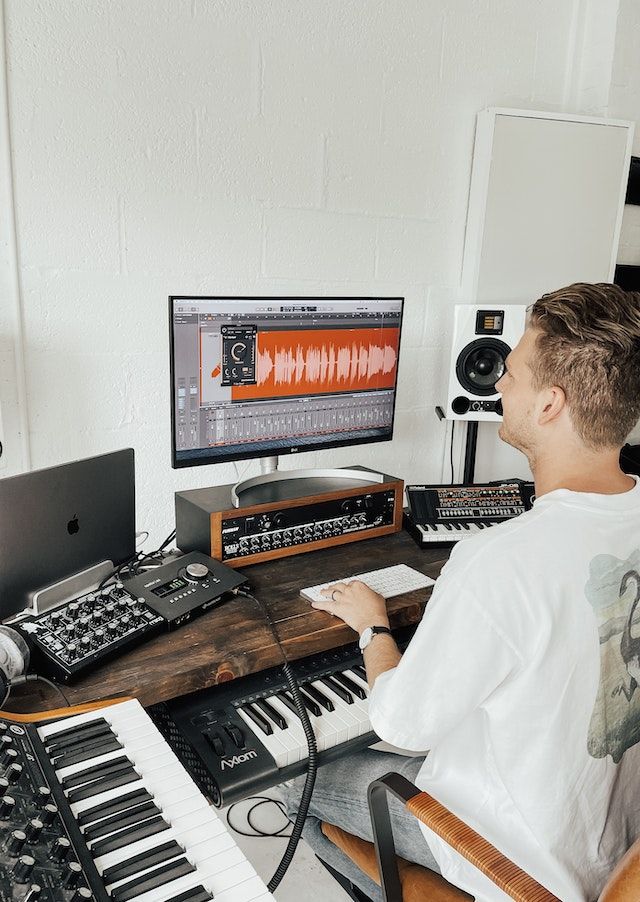
Learn how to use a DAW
You will need certain tools in order to utilise a DAW efficiently, such as a nice set of monitors (speakers) or headphones so you can listen to your music before uploading it to various services like SoundCloud or YouTube, etc.
When you're through recording your tracks in the studio using other tools like microphones or virtual instruments like pianos, etc., having high-quality studio monitors will make it easier for you to mix them down.
You can view videos on virtually every element of using each of the major DAWs on their numerous YouTube channels. These are frequently provided by the DAW's manufacturer, while occasionally they come from an independent guru with extensive knowledge and practical experience using that DAW.
Get familiar with your computer and its resources
Get familiar with your computer and its resources. This is essential so you know what to expect from your computer when making music.
RAM (Random Access Memory) - The amount of RAM is important because it can affect the speed at which you can run programs on your computer. It determines how many programs can run simultaneously, and how much data those programs have access to at any given time.
CPU (Central Processing Unit) - The CPU primarily determines the speed at which a program runs, which is usually measured in GHz or MHz (gigahertz or megahertz).
GPU(Graphics Processing Unit) - The GPU allows for faster rendering of images than an integrated graphics chip would allow for on its own, but it still isn't as good as having one built-in to your processor.
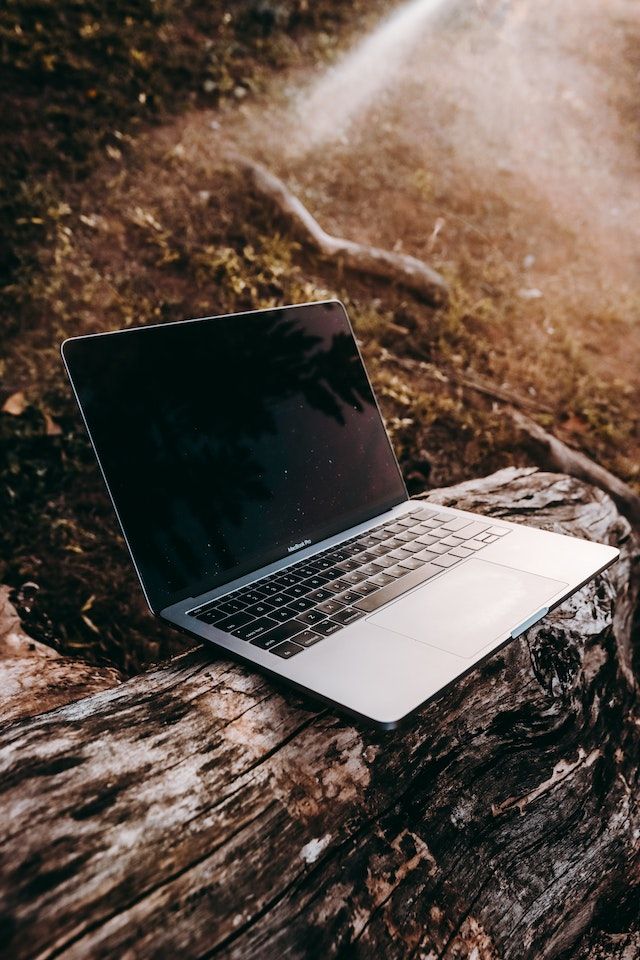
Produce practice beats
If you’re looking to practice your skills as a music producer, there are many ways to do so. You can create your own practice beats from scratch or find some free ones online and take them apart.
Findings your favorite artists' raw tracks and trying to recreate them in your own way is also a great way to improve your production skills. You could even find old songs by yourself or friends and make new versions of those!
Practicing beats is a great way to learn how to mix music and become a music producer, so try creating one with several layers of instruments and effects (like reverb) playing simultaneously before learning how to master music using pitch shifting, compression, and other sophisticated techniques that make synths sound more realistic while keeping vocals at the forefront of every track.
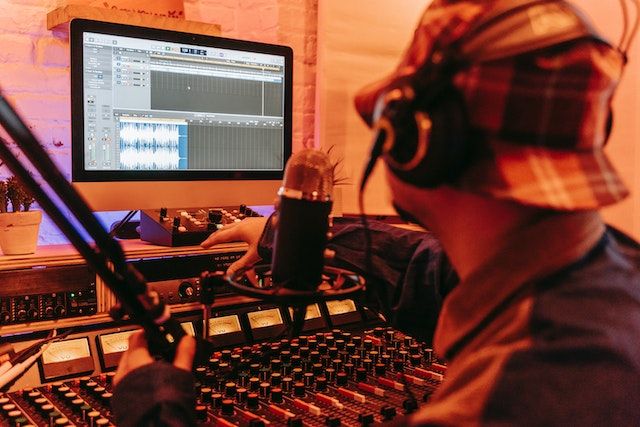
Get networking
Once you have your first few connections in the industry, it's important to build on them. You can do this by reaching out to people and asking them for advice. This is where networking comes into play!
You should also make a list of everyone you've talked to so far, including their LinkedIn profiles, phone numbers and email addresses. This will help you keep track of all your contacts so that when you need something from them later on in your career, they'll be more likely to help out.
Finally, try sending people messages every once in a while just saying hello or giving them updates about what's going on with your music production business or projects.

Show off your work
Once you've finished a track and are happy with it, you'll want to get it out there. This is where SoundCloud comes in handy. Uploading your music onto this site can be great for getting exposure if people like what they hear.
It's also worth adding your music to platforms such as YouTube, Spotify and iTunes so that people can easily find them when searching for similar artists, but in order to do so you will need a music distributor like CD Baby, DIstrokid etc. that will handle digital distribution for you in all the main music streaming platform out there.
CalypsoRoom is also an excellent platform for music promotion because it allows you to have one-on-one video chats with your followers and fans and is currently the only one that will pay you directly and per play, offering you another option for music promotion. If you're interested in contributing your music to the program, fill out this form.
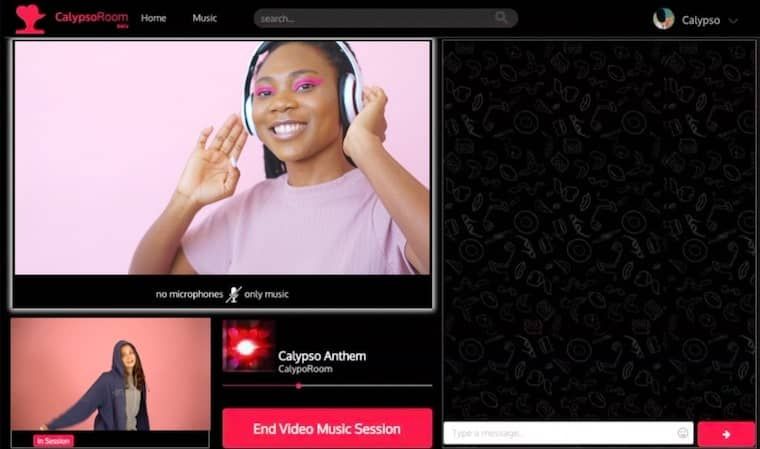
Collaborate with others musicians
There are many benefits of collaborating with other musicians and music producers, including the following:
- By observing others at work and getting their answers to your questions, it enables you to learn from them and offers you a chance to share your own knowledge.
- Collaborating with others also gives you feedback on how your work can be improved before going solo as an artist or producer.
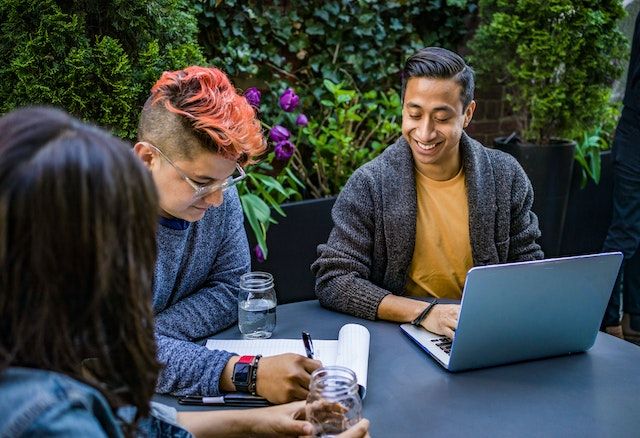
Follow trends, but don't be afraid to break them
It's important to know what is happening in your industry. The music industry is constantly changing, and if you want to be successful as a music producer, you will have to stay on top of these changes.
You will probably also want to pay attention to other parts of the entertainment world such as movies and TV shows; they are often an inspiration for new ideas and sounds.
As a new producer, it would be good if you watch some of your favorite artists' older work (whether they are still around or not) so that you can see how their sound has changed over time—and maybe even figure out what direction they might go next!
Remember: sometimes breaking from convention can open up whole new ways of thinking about things which ultimately lead towards to success!
How to become a music producer - Conclusion
We hope this blog post has given you a better understanding of how to become a music producer. Learning how to become a music producer is not easy. However, if you follow these 9 steps and put in the work now, your future will be brighter than ever before!
We hope you enjoyed reading this post, and if you'd like more technology related article, please visit our blog section.
In CalypsoRoom we believe music is the most powerful tool to bring people together, and that’s why we created a music social network online where you can meet friends or new people starting from the same song, listening to the music simultaneously connected by webcam. Check it out!
Thanks for reading,
CalypsoRoom Team
Frequently Asked Questions
What is the role of a music producer?
A music producer is in charge of supervising the production of a song or album, collaborating closely with the artist, engineers, and other team members to guarantee that the finished product achieves the necessary creative and business objectives. Producers may manage the technical elements of recording and mixing as well as activities like choosing songs, organizing music, directing performances, and more.
Do I need a degree to work as a music producer?
Although it might be beneficial, a degree in music production or a closely related discipline is not necessarily essential to become a music producer. Several well-known producers got their start in the business through internships, mentorships, or even just by building their expertise and name through their own productions.
What skills do I need to work as a music producer?
In addition to having a solid musical foundation and technical expertise in recording and production tools, music producers should be able to interact with artists and other collaborators successfully, effectively manage time and resources, and think creatively to come up with new ideas.
Which equipment and programs do music producers most frequently use?
While making and recording music, music producers frequently combine hardware and software resources. Digital audio workstations (DAWs) like Logic Pro, Ableton Live, and Pro Tools are common examples. Other examples include different plugins, synthesizers, and effects processors. To collect and polish their recordings, producers might also employ studio tools including microphones, mixers, and monitors.
What steps should I take to become a music producer?
It's crucial to develop your abilities and expertise via practice and collaboration if you want to become a music producer. To do this, you might need to enroll in classes or tutorials, experiment with various production methods, look for mentoring or input from more seasoned producers, and compile a portfolio of your work to demonstrate your abilities and aesthetic sensibilities.
What are some tips for entering into the music producing business?
It can be difficult to break into the music production industry, but some important advice includes networking with other industry professionals, forming connections with artists and labels, staying current with technological advancements and industry trends, and creating a strong personal brand and online presence to market your work. In order to succeed in the music business, you must frequently put in a lot of effort and be dedicated to your trade.
back
Written by CalypsoRoom Editorial Team
The CalypsoRoom Editorial Team is a skilled and diverse group of writers, researchers, and industry specialists who have access to Calypso's data and information in order to give you broad knowledge about the music industry as well as helpful advice to help you manage your music and dancing career.
Updated January 2023
Company number: 681223
James's Walk 31, Dublin, Ireland
contact@calypsoroom.com
+353 (89) 435 8928

